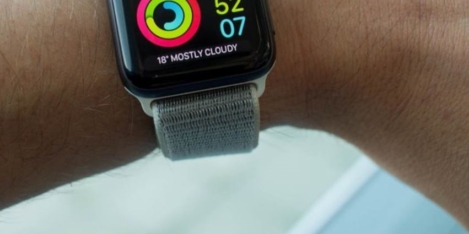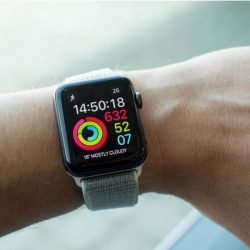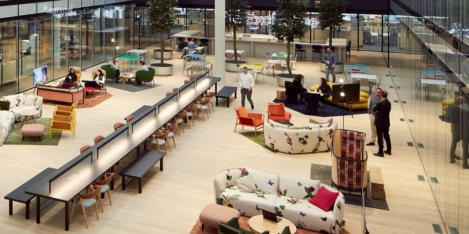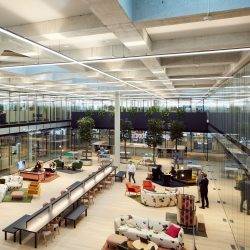To provide the best experiences, we use technologies like cookies to store and/or access device information. Consenting to these technologies will allow us to process data such as browsing behaviour or unique IDs on this site. Not consenting or withdrawing consent, may adversely affect certain features and functions.
The technical storage or access is strictly necessary for the legitimate purpose of enabling the use of a specific service explicitly requested by the subscriber or user, or for the sole purpose of carrying out the transmission of a communication over an electronic communications network.
The technical storage or access is necessary for the legitimate purpose of storing preferences that are not requested by the subscriber or user.
The technical storage or access that is used exclusively for statistical purposes.
The technical storage or access that is used exclusively for anonymous statistical purposes. Without a subpoena, voluntary compliance on the part of your Internet Service Provider, or additional records from a third party, information stored or retrieved for this purpose alone cannot usually be used to identify you.
The technical storage or access is required to create user profiles to send advertising, or to track the user on a website or across several websites for similar marketing purposes.
 One of the most commonly used and longstanding recruitment practices should be reconsidered according to new research from academics at Florida State University. Screening job applicants based on their prior work experience is often a mistake for employers because there appears to be little or no correlation between previous experience and future performance, according to a paper from Chad Van Iddekinge, FSU’s Bank of America Professor of Management and an expert on human resources management. More →
One of the most commonly used and longstanding recruitment practices should be reconsidered according to new research from academics at Florida State University. Screening job applicants based on their prior work experience is often a mistake for employers because there appears to be little or no correlation between previous experience and future performance, according to a paper from Chad Van Iddekinge, FSU’s Bank of America Professor of Management and an expert on human resources management. More →

















 Intuit UK yesterday hosted almost 200 women, with diverse backgrounds across class, ethnicity and age, who are part of The Pipeline’s alumni of their Leadership Summit programme. Over 50 percent of women in the room who attended Leadership Summit have been promoted or have broadened their role since finishing the programme.
Intuit UK yesterday hosted almost 200 women, with diverse backgrounds across class, ethnicity and age, who are part of The Pipeline’s alumni of their Leadership Summit programme. Over 50 percent of women in the room who attended Leadership Summit have been promoted or have broadened their role since finishing the programme.


 Ahead of daylight savings this weekend,
Ahead of daylight savings this weekend, 
















April 8, 2019
Navigating organisations through digital transformation
by Ian Tickle • Comment, Technology
More →